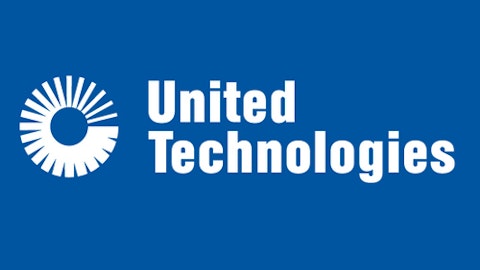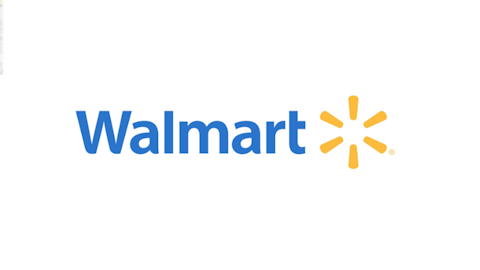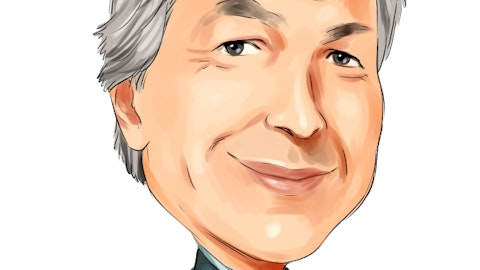In the aftermath of the financial crisis, JPMorgan Chase & Co. (NYSE:JPM) was viewed as a trustworthy bastion among bankers — an industry in which hardly a leader’s reputation had remained unscathed. CEO and Chairman Jamie Dimon’s stellar reputation set his firm apart. Even the most vociferous critics of financial companies exhibited great respect for Dimon.
How times have changed.

Shareholders made a big mistake
At JPMorgan Chase & Co. (NYSE:JPM)’s annual meeting last spring, shareholders voted in favor of Dimon retaining his chairman title in a high-profile and controversial shareholder vote.
Given continued evidence that JPMorgan Chase & Co. (NYSE:JPM) under Dimon wasn’t the ironclad financial firm many thought it was, the fact that shareholders would defend his continued chairman title was hardly a foregone conclusion. That made it all the more shocking when shareholders voted for his continued dual role.
The London Whale controversy had already placed a smear on the company’s reputation, and it certainly didn’t reflect well on Dimon’s leadership. Still, Dimon obviously had enough admiration to receive a serious pass from the company’s shareholders.
Flash forward just a few months, though, and we can surmise that such trusting — possibly even adoring — shareholders made a big mistake by not delivering even that minor slap on the wrist. Not only was JPMorgan not the gold standard financial firm so many thought it was, the distinct impression now is that it’s far more tarnished than anyone realized.
JPMorgan is subject to more than a dozen investigations right now. Will that number stop growing?
Corruption’s big costs to big companies
For some companies, bribery may be viewed as a cost of doing business in other countries — as long as they don’t get caught, of course. If they are, they’re subject to the Foreign Corrupt Practices Act, or FCPA, through which the United States seeks to smack some big wrists. Other governments may get in on the possibility of disciplinary action, too.
JPMorgan Chase & Co. (NYSE:JPM) is currently on the list of companies that are being targeted regarding international corruption. This week, we learned that the Securities & Exchange Commission is examining whether JPMorgan Chase & Co. (NYSE:JPM)’s hiring the progeny of politicians in its Chinese business could constitute bribery.
Apparently, this will be difficult to prove. However, knowing how things sometimes work in the Chinese market — connection-type corruption in that marketplace is probably the rule more than the exception — the big question is a legitimate one: Could these highly connected employees have helped the firm get special status to work with state-owned businesses?
Granted, JPMorgan Chase & Co. (NYSE:JPM) isn’t the only company that may have run afoul of regulators and the FCPA in international markets. According to the The FCPA Blog, as of June 30, a rather sobering 91 major companies are involved in continued, unresolved investigations. Many household names are on this list. For example, so much for the Magic Kingdom and squeaky clean — even Walt Disney is on the list.
Wal-Mart Stores, Inc. (NYSE:WMT)‘s a no-brainer for financial news junkies; recall its highly publicized troubles concerning international bribery allegations. Although investigations first centered on Mexico, Wal-Mart Stores, Inc. (NYSE:WMT) was also accused of having utilized such practices in China, India, and Brazil as the situation unfolded.
Many factors are dogging Wal-Mart Stores, Inc. (NYSE:WMT) these days, as evidenced by its latest quarterly results. However, beyond ramifications on the consumer spending side, it’s also still throwing money at the FCPA situation. So far this year, the megaretailer has spent $155 million on the issue, and its compliance costs for the remainder of the year is expected to exceed original estimates, at $75 million to $80 million.
This topic underlines several topics of importance to investors. Operating in other countries is difficult, with far different cultures and market structures. In some places, corrupt practices are the easiest way to get ahead, unfortunately, and possibly even the most accepted way to do business.
That doesn’t mean companies should indulge in unethical practices, but the reality is that some do, and sometimes they get nailed for it. Shareholders should think not only reputational damage, but also literal financial damages.
Avon Products, Inc. (NYSE:AVP) spent $339.7 million on fees related to FCPA investigations since 2009, and the costs aren’t over yet. In its 2012 annual report, it said the fees “are difficult to predict,” which is not comforting to shareholders of any company. Glance at the company’s five-year chart, and we can surmise that such costs were the last thing the company needed, and its stock price shows it.
Remember News Corp.‘s phone-hacking scandals, involving allegations of bribery? That company has spent $179 million on legal and other fees, and $191 million on civil settlements. Just today, Bloomberg and other news outlets are reporting more criminal charges related to the scandal.
Losing energy
Some shareholders may still insist on giving JPMorgan Chase & Co. (NYSE:JPM)’s Dimon a pass; the fact that it’s by no means lonely under the lens of FCPA scrutiny is one rationalization. Plenty of analysts are pointing out that the kind of “bribery” in question isn’t cut and dried. It’s hardly unusual for people to hire the children of connected people, here and abroad. It’s difficult to prove that that’s intended to gain special favor, or even if it actually will.
However, the bribery allegations aren’t even the end of this week’s top headlines involving the bank. JPMorgan Chase & Co. (NYSE:JPM)’s beset on many sides. Last month, it settled with the Federal Energy Regulatory Commission for $410 million regarding allegations that it had manipulated energy markets in California and the Midwest. Now, the Department of Justice is taking a shot at the bank regarding energy trades, too.
Things have gone way beyond the London Whale. This appears to be a whale-infested waterspout, putting “Sharknado” to shame; it’s a lot less amusing than a ridiculous B-movie. In fact, it’s real.
The cost of unconditional approval
These days, we have plenty of superstar CEOs. Many CEOs may be underrated, but there are some that many people do respect. Still, investors should weigh whether their opinions should change, at least a little bit.
Obviously, when shareholders voted in the spring, they illustrated that, for the most part, opinion hadn’t changed about Dimon’s capabilities and controls over what was going on at the company.
Investors shouldn’t love stocks to the point that they ignore warning signs, and similarly, shareholders shouldn’t love CEOs to the point that they are unwilling to acknowledge legitimate concerns. As reputations deteriorate, and related costs rise, profitability and investment returns can surely suffer.
The article Dimon’s Dive From Grace, and Other Investing Lessons originally appeared on Fool.com and is written by Alyce Lomax.
Alyce Lomax has no position in any stocks mentioned. The Motley Fool recommends Walt Disney. The Motley Fool owns shares of JPMorgan Chase & Co (NYSE:JPM). and Walt Disney.
Copyright © 1995 – 2013 The Motley Fool, LLC. All rights reserved. The Motley Fool has a disclosure policy.




